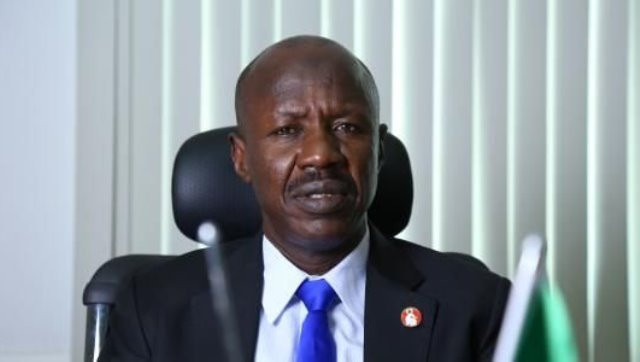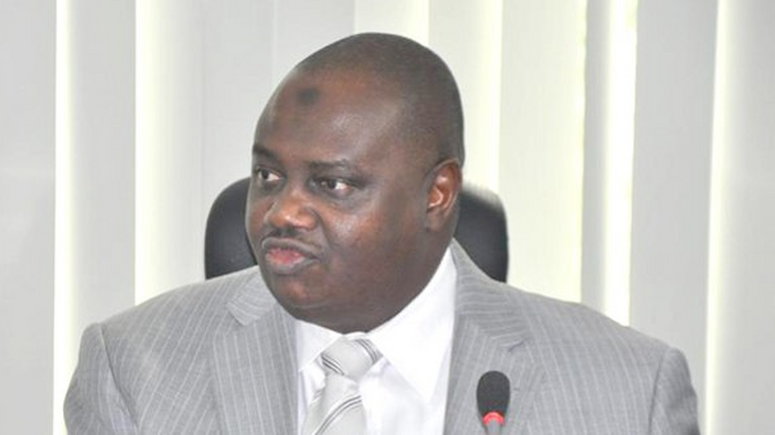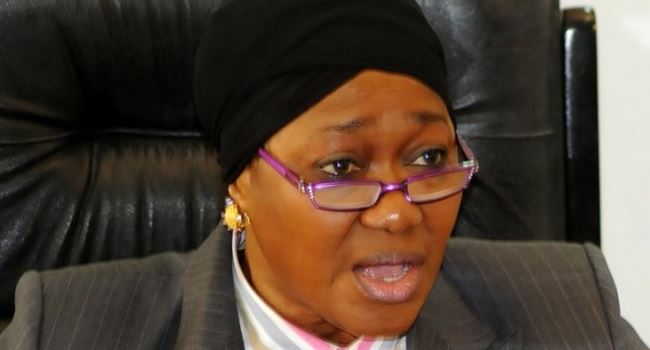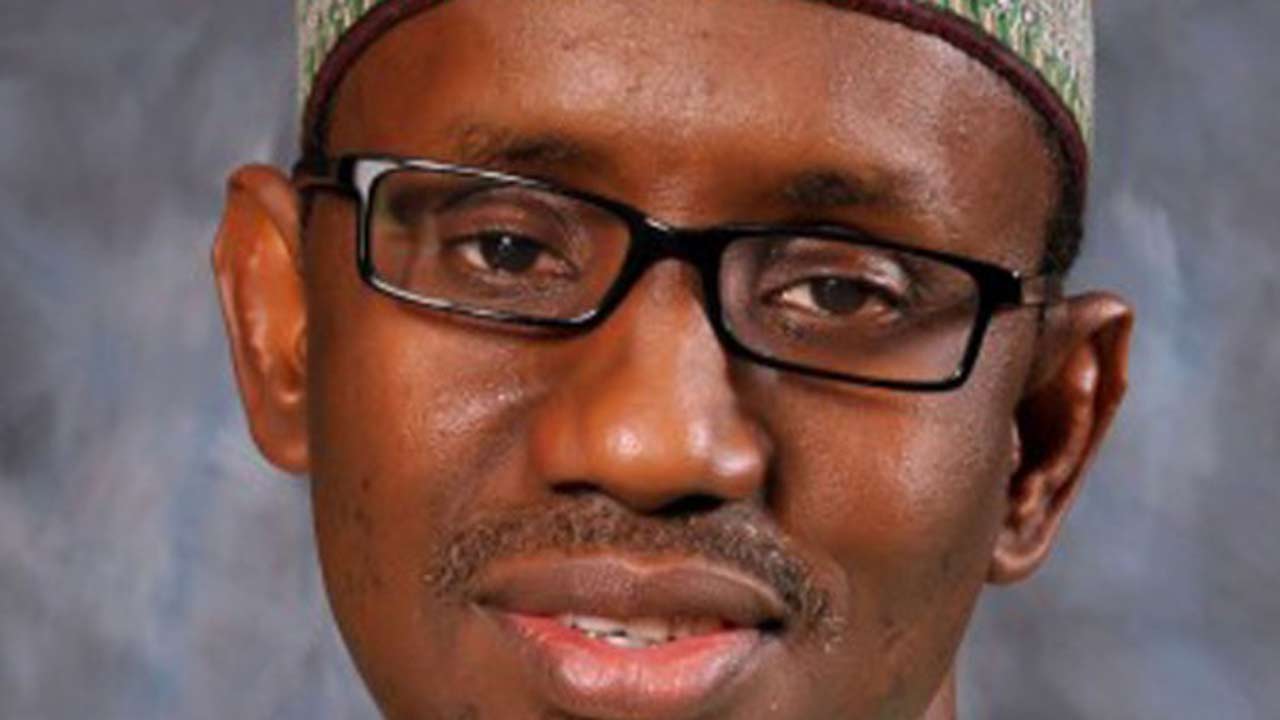
The doubt, which many expressed about the capacity of the Nigerian government to fight corruption to a standstill, appears to be gaining grounds.
Nothing justifies this conclusion better than the unceremonious exit of four former heads of the country’s anti-graft agency. None has ever finished well as they have always been accused of corruption, the same illness that they were primarily hired to cure. Consequently, they ended up as “hunters being hunted.”
Simply put, pervasive corruption has ensured that the nation’s needs remain unmet, potential remain in their latent state rather than translate to political and economic fortunes, while nepotism has stagnated development.
From the foregoing scenario, other than leadership deficit, systemic corruption in government, and sleaze of diverse shades in the society have been largely responsible for the country’s heart-rending underdevelopment.
This, perhaps, explains why successive governments have tried to tackle the social malaise through legislation, which culminated in the creation of anti-corruption agencies.
To date, the Economic and Financial Crimes Commission (EFCC), and the Independent Corrupt Practices Commission (ICPC), both created by the President Olusegun Obasanjo-led government remain the most audacious attempts at fighting corruption.
The EFCC, whose chairman/chief accounting officer, the law says must be a serving or retired member of any government security or law enforcement agency, not below the rank of assistant commissioner of police or its equivalent, and possess not less than 15 years cognate experience, is charged with the responsibility of enforcing the provisions of the Money Laundering Act (2004); the Money Laundering Act (1995); the Advance Fee Fraud and Other Fraud Related Offences Act (1995); the Failed Banks (Recovery of Debts) and Financial Malpractices in Banks Act (1994) the Banks and other Financial Institutions Act (1991), and the Miscellaneous Offences Act.
Specifically, the commission is mandated to combat financial and economic crimes, as well as prevent, investigate, prosecute and penalise economic and financial crimes, in addition to enforcing provisions of other laws and regulations that relate to economic and financial crimes.
Of these two major agencies, the EFCC has been the most controversial and vociferous just as it has been in the forefront of apprehending, and prosecuting political and business leaders, who have over the years, perfected the skills of scamming Nigeria and Nigerians.
In the course of its activities, the EFCC has also succeeded in recovering from thieving officials, billions of naira, and generally repatriating the commonwealth of the people carted away.
Its modest efforts notwithstanding, the EFCC has been subjected to incessant interference by the political class, especially the party in power. Its past heads, as well as other top and junior operatives, have also, by their actions and inaction, weakened its operational efficiency thereby dragging it back anytime it is on the cusp of history. Similarly, a combination of waning technical capacity, poor funding, insider abuse, have all joined forces to undermine the commission’s effectiveness, among others.
Be that as it may, the ongoing trial of its suspended acting chairman, Mr. Ibrahim Magu, has, yet again, reopened the debate on whether any person of integrity would aspire to lead the agency as chairman.
With the Tuesday, July 7, 2020 suspension from office of its embattled acting chair, Mr. Ibrahim Magu, the agency simply furthered the tradition of having its bosses kicked out of office in questionable circumstances.
Expectedly, his removal, which has swayed in the wind, the integrity of President Muhammadu Buhari’s anti-graft war, has also vindicated the 8th National Assembly, and the Department of State Services (DSS). Both bodies had earlier described Magu as unfit to head the anti-graft agency.

Since Magu’s suspension, stakeholders, including legal practitioners and civil society groups maintain that past heads of the commission have always been sent packing unceremoniously as a result of political interference, which has eroded its integrity and independence, as well as claims that successive governments have not been truly committed to the fight against corruption.
They have also been claims that the ugly trend has continued because successive chairmen of the commission have compromised their offices as a result of their susceptibility to corruption and partisan disposition even as the anti-graft body lacks institutional independence.
Diary Of Questionable Exits
The premier EFCC Chairman, Nuhu Ribadu, got his immaculate image tainted by evidence that his fight was partisan and heavily influenced by his employers. Besides being accused of a double standard, he was also alleged to be insincere in his fight against corruption.
However, just two weeks after Ribadu tried to prosecute the former Delta State governor, James Onanefe Ibori, a close associate of President Umaru Yar’Adua, who succeeded Obasanjo, he was removed from office and sent on study leave to the National Institute of Policy and Strategic Studies (NIPSS), Kuru near Jos, Plateau State.
Farida Mzamber Waziri, who replaced Ribadu in 2008, was alleged to have taken the fight against corruption several notches down from where Ribadu left off. A handful of politicians and activists, who were displeased with the development mounted a steady campaign for her sack, while some even accused her of being corrupt.
Like Ribadu, the EFCC under Waziri was accused of being selective in its investigations and was particularly alleged to have compromised the investigation into financial misappropriation against the former governor of Bayelsa State, and the current Minister of State for Petroleum, Timipreye Sylva.
Having oscillated between one corruption-related scandal to the other for a reasonable part of her stay in office, President Goodluck Jonathan showed her the door on November 23, 2011, after which the Independent and Corrupt Practices and other Related Offences Commission launched a “broad investigation into her tenure, and what appears to be very disturbing evidence of corruption.”
Ibrahim Lamorde, who was made Director of Operations after Tiyamiyu Oluwagbemiga retired as the pioneer Director of Operations and Strategy in 2006 was, in 2008, appointed acting chairman of the commission after Ribadu was sent back to school. He held office for five months until Farida Waziri was appointed chairperson in May 2008.
Shortly after Waziri took the reins, Lamorde was posted to Bauchi State only to return in December 2010, again as Director of Operations. When Waziri was dismissed in November 2011, Lamorde, then an Assistant Commissioner of Police (ACP) was again appointed acting chairman and was confirmed as substantive chairman on February 15, 2012.
Like his predecessors, there were different allegations of corruption leveled against Magu, one of which was the petition to the Senate, by one George Uboh, who alleged that the suspended EFCC boss failed to remit more than N2.05t, being funds recovered from corrupt leaders.
Lamorde was also accused of diverting over N1t recovered from the sale of confiscated property belonging to convicted government officials, including the former governor of Bayelsa State, the late Diepreye Alamieyesiegha, and a former inspector-general of police, Tafa Balogun.
Magu, who took office as acting chairman of EFCC on November 9, 2015, had earlier served under Ribadu’s at the commission and was even credited with some of the successes recorded during that era.
Magu’s Fall From ‘Grace To Grass’
Since arriving on the scene the second time, Magu thrived in controversy and was never afraid of squaring up against elite members of the political class; other government appointees, as well as government institutions, including the NASS and the DSS.
After ignoring a groundswell of corruption allegations levelled against Magu in 2017, the Buhari government finally suspended him while a presidential panel was inaugurated to investigate alleged corruption and insubordination.

Incidentally, it was Magu’s lengthy spat with another appointee of the present government that brought him down from his Olympian height.
The Attorney General of the Federation, Abubakar Malami, who made the allegations, accused Magu of insubordination, re-looting of recovered funds, money laundering, victimisation of Nigerians and generally mismanaging of recovered assets, among others.
Days after Buhari approved of Magu’s suspension from office, he again suspended no fewer than 11 senior officials of the outfit, including the commission’s secretary, Olanipekun Olukoyede, to allow for unfettered investigation of the commission.
The director of operations, Mohammed Umar Abba, who had been named as head in an acting capacity survived the temporary purge, as he was not found wanting.
However, Magu, through his counsel, Wahab Shittu, in writing to the Justice Salami-led panel, maintained his innocence and insisted that all 15 allegations against him were fabricated and aimed at tarnishing his image and rubbishing the credibility and image of EFCC.
He specifically denied ownership of any property in Dubai, refuted reports that some dollars, expensive pieces of jewelry, including wristwatches were found in his house during a raid by security operatives, as well as denied N28m or any amount to Mr. Femi Falana SAN, or giving the sum of N4b or any sum at all to Vice President, Prof. Yemi Osinbajo SAN.
No One Is Above The Law
Expectedly, Magu’s suspension and probe generated uproar from within and outside the country, with many saying the country could face a serious backlash, while others say its reflective of government’s half-hearted approach to ridding the country of the malaise.
But as a way of allying fears of political vendetta or any such back-hand dealing in the prosecution, the Presidency, swiftly declared that Magu must give an account of his stewardship to the people, claiming there were no sacred cows under the Buhari-led government.
The Presidency, however, stated that Magu was still innocent until otherwise declared by the Justice Ayo Salami-led panel investigating sundry allegations brought against him.
In a statement by the Senior Special Assistant on Media and Publicity, Garba Shehu, the Presidency said with the preliminary review of a series of documented allegations leveled against him and several other members of his staff, there were grounds for a detailed investigation to be conducted.
“Hence, an investigative panel was constituted in compliance with extant laws governing the convening of such a body.
“As is the proper procedure, when allegations are made against the chief executive of an institution, and in this case an institution that ought to be seen as beyond reproach, the chief executive has to step down from his post and allow for a transparent and unhindered investigation.
“The EFCC does not revolve around the personality of an individual, and as such cannot be seen through the prism of any individual. Therefore, the suspension of Mr. Ibrahim Magu, allows the institution to continue carrying out its mandate without the cloud of an investigation hanging over its head.
“The EFCC has many good, hardworking men and women who are committed to its ideals, and ensuring that the wealth of our country isn’t plundered and wherein there is an act of misappropriation such person(s) are brought to justice.
“Under this president and government, this is our mantra and guiding principle. There are no sacred cows, and for those who think they have a halo over their heads, their days are also numbered. Mr. Magu was not immune – and regardless of the obvious embarrassment that potential acts of wrongdoing by him, given the office he held, may appear for the government. No other administration in the history of Nigeria would have moved to bring into the light and public domain such an allegation.”
International Community Decries Magu’s ‘Political Removal’
Indications that some of Nigeria’s strategic allies in the anti-corruption war were taking more than a passing interest in Magu’s travails and probe emerged only days after he was picked up and detained.
Countries, including the United Kingdom, France, Switzerland, the United States, and the United Arab Emirates (some of whom have mutual legal assistance treaties with Nigeria) are closely monitoring the process of the investigation, and activities of the presidential investigative committee.
Apart from these countries, Europe-based anti-corruption groups that are part of a global coalition, last week, wrote to Buhari complaining about Magu’s “political removal.”
The groups in a letter signed by Nicholas Hildyard of Corner House, Lucas Manes of Re:Common, Simon Taylor of Globalwitness, as well as their Nigerian counterpart, Olanrewaju Suraju of the HEDA, said Magu’s disgraceful ouster may erode recent gains made in the fight against corruption.
“What is going on in Nigeria is of concern to the international community. Mr. Magu has proved himself to be up to the task. His determination to fight corruption is evident by the recovery of stolen funds and properties plus his own high moral ground earned at the cost of diligence and hard work never before seen. This questions the will of Nigeria to deal with a major cause of the country’s underdevelopment which is corruption,” the letter read.
“His removal questions the will of Nigeria to deal with a major cause of the country’s underdevelopment which is corruption… We are therefore greatly alarmed – as are others in the international anti-corruption movement – by reports that Magu has been detained and/or suspended following allegations against him that were reportedly made by the Attorney-General of the Federation, Mr. Abubakar Malami (SAN).
“However, we very much hope that you will find a way forward that protects the huge strides made by the EFCC under
Magu’s acting chairmanship.”
Nigeria Sending Confusing Signals To World Regarding Anti-graft War
BOTH the Head of Transparency International (Nigeria), Auwal Musa Rafsanjani and Chairman of Coalition Against Corrupt Leaders (CA-COL), Debo Adeniran, insist that if Nigeria fumbles in the ongoing trial, her anti-graft war would, at best be seen by the international community as a ruse, just as no persons of integrity would want to go into that office only to be disgraced owing to petty politics.
Rafsanjani, who is also the Executive Director, Civil Society Legislative Advocacy Centre (CISLAC) said the international community is becoming suspect of our anti-graft war, the country must take specific steps to make the war believable once again.
“In the short-term, Magu’s investigation must be conducted with maximum transparency. Any findings of the investigation panel must be presented to the public without any restrictions and political connotations. All evidence presented must be verifiable by the civil society and the international community.
“Also, Nigerian law enforcement and politically exposed persons should stay away from any statements on this matter until clear evidence is presented and conclusions are reached in the investigation. If Magu is suspended indefinitely, his successor must be appointed based on independence, competence, positive record, and with clear political backing across the political parties.

“In the long-term, legal and policy frameworks need to be strengthened. For example, Magu is accused of mismanaging and embezzling recovered assets. The Proceeds of Crime Act has not been signed by the President. It is impossible to manage transparently, recovered assets without this legislation. Also, anti-corruption institutions must prove that they are impartial and follow the law to the letter. Verifiable statistics on investigations, prosecutions, and convictions must be proactively published. Final and interim asset freezes and confiscations must also be published.
This will convince Nigerians and the international community about the impartiality and competence of the anti-corruption fight in Nigeria.”
Rafsanjani, who is also the Board Chairman, Amnesty International (Nigeria) while commenting on the major factors that predispose past chairmen of the EFCC to fall into booby traps and sundry temptations that end up consuming them, he said: “We must acknowledge the existing weak transparency and standardised operational procedures of anti-corruption institutions in the country. Without strong operational ethics with strict implementation and sanctions against deviation, we will continue to have a problem at an institutional leadership level in the fight against corruption. We can borrow from the British government’s Seven Principles of Public Life as the basis of the ethical standards expected of every public office holder. Holders of public office should exhibit these principles in their behaviour; they should actively promote and robustly support the principles and be willing to challenge poor behaviour wherever it occurs.
“Effort to strengthen the system can adopt these principles to guide codes of conduct across anti-graft institutions. The fact that there is no operational independence of the chair makes it exceptionally difficult. This is largely due to the system of appointments dependent on the Presidency. There is also a general culture of the perceived right of those in power to use state institutions for power preservation and personal enrichment. Until this is changed, no law or policy will dramatically improve the chances to fight corruption,” he said.
Adeniran, who maintained that Magu’s saga makes a bold statement that “the government is not truly committed to the fight against corruption,” added that we “know that those being probed by this commission are very powerful in terms of the network; they have stolen so much that they could bribe and buy anybody, including bribing the commission’s operative to implicate their chairman. And that is what happened to Nuhu Ribadu, who started well before cartels started huddling all around him ahead of his being sent to the National Institute for Policy and Strategic Studies against his wish. Even Lamorde, who was brought in after Farida Waziri had been accused of so many infractions, is himself yet to be proven guilty since he left office.
“When Waziri came in, she was willing to make her mark, but corruption fought back and did not allow her to succeed. This is a common development, and the Office of the Minister of Justice has always been a clog in the wheel of progress of all these chairmen of EFCC.”
Getting The Right Candidate For The Job
A human rights lawyer, Inibehe Effiong strongly believes that one of the reasons that different chairmen of the commission have not been able to function efficiently in office is because the EFCC lacks institutional independence, even as it has been personalised.
He regretted that political interference has eroded its independence, a development that explains why successive chairmen of the commission have had ignoble exits.
“Past chairmen of the commission felt beholden to the president because they were not given a free hand to operate. Any head of the commission that tries to assert his authority is shown the way out. However, another reason for this trend is that successive chairmen of the commission compromised their offices because of their susceptibility to corruption and partisan disposition. This makes them vulnerable to political control and manipulation,” Effiong said.
To ensure that dislocations and disgraceful ousters are curtailed, Adeniran suggested adequate safeguards in the books that establish the EFCC, and the Independent Corrupt Practice Commission (ICPC).
“Such safeguards would ensure that chairmen of anti-graft commissions are allowed to serve out their term of office. If they committed any infraction while in office, they should be prosecuted after their tenure and punished accordingly. And the law should have made it clear from the beginning that if they commit any infraction in the areas of corruption, which they are supposed to fight, their punishment should be doubled.”
He stressed that with the guaranteed term, EFCC helmsmen would strive to do justice to cases brought before them, especially when they know that severe punishment awaits them (after their tenure) if they falter. Also, Nigerians would give massive support to the commission once they know that the chairmen are working without undue pressure, and are not being controlled by politicians. That goes on to say that the president should send a bill that will make the Office of the Minister of Justice not to have any undue influence or interfere with what the EFCC chairman is doing.






